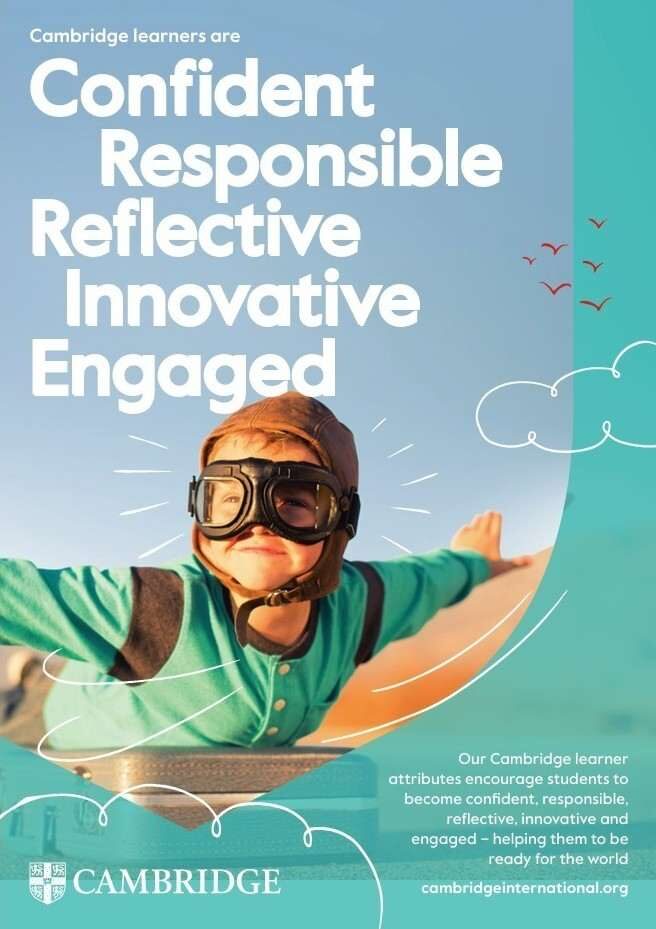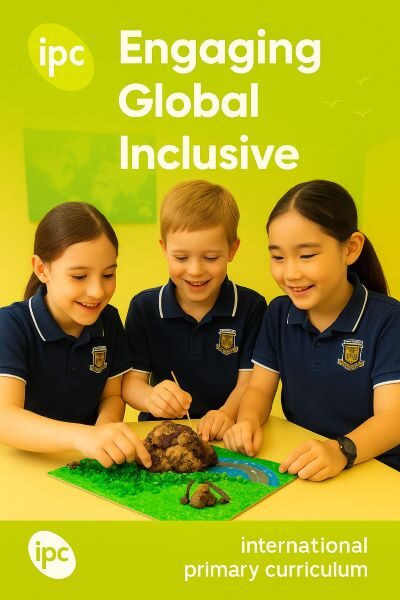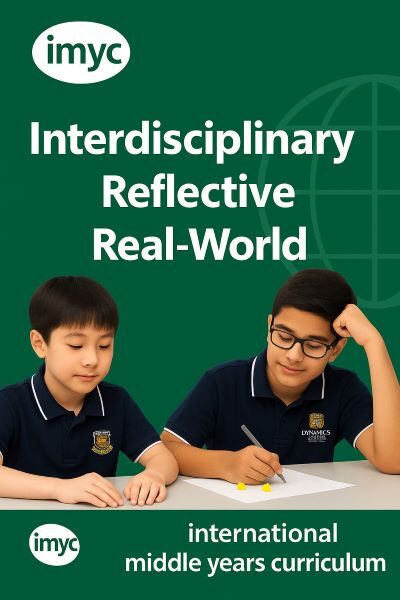Our Curriculum
Our curriculum is built on the integration of three internationally recognised, evidence-based programmes: Cambridge, International Primary Curriculum (IPC)/International Middle Years Curriculum (IMYC), and the EQUALS Functional Curriculum. Together, these frameworks provide a rich balance of academic rigour, thematic inquiry, and practical life skills. Cambridge ensures structured, measurable progress in core subjects, while IPC/IMYC bring learning to life through interdisciplinary themes that foster creativity, reflection, and global awareness.
EQUALS adds an essential dimension by strengthening executive functioning, social-emotional skills, and independence, ensuring that every learner is prepared not only for academic success but also for the demands of daily life and future adult responsibilities.
What makes this approach unique at DIS is the way these curricula are adapted and personalised for each student profile. As an inclusive school with an integrated therapy model, our teachers and therapists work hand in hand to ensure that academic learning, therapy goals, and social-emotional development are seamlessly connected.
Currently offering Grades up to 12, DIS enable learners to grow within an inclusive, supportive environment that prepares them for further study, work, and life.

Cambridge International Education
At Dynamics International School (DIS), we are proud to be an approved Cambridge school, delivering the globally recognised Cambridge Curriculum. This mainstream, internationally benchmarked framework is renowned for its academic rigour, clear learning progressions, and emphasis on higher-order thinking skills. Its structured yet flexible design allows our educators to personalise learning, ensuring that neurodiverse students receive the right balance of challenge and support. Research consistently affirms that high expectations, coupled with targeted scaffolding, foster both cognitive growth and self-efficacy in diverse learners. By integrating Cambridge’s well-defined academic standards with our inclusive, therapy-supported environment, DIS ensures that every student, regardless of learning profile, can access, engage with, and excel in a curriculum that prepares them for further education and life beyond school.
Cambridge Math
Our Cambridge Mathematics programme cultivates deep conceptual understanding alongside procedural fluency, empowering students to apply mathematical thinking with confidence and precision. Grounded in internationally benchmarked standards, the curriculum develops logical reasoning, analytical skills, and problem-solving strategies essential for both academic progression and real-world application. For neurodiverse learners, its clear learning sequences, adaptable pacing, and emphasis on mastery provide an optimal balance of challenge and support, nurturing not only mathematical competence but also a genuine appreciation for the beauty and utility of mathematics.
Cambridge English
The Cambridge English programme at DIS develops literacy as both a skill and a gateway to global understanding. Through an integrated focus on reading, writing, listening, and speaking, students gain mastery of language mechanics while learning to communicate with clarity, nuance, and confidence. Lessons are grounded in authentic, real-world contexts, enabling learners to navigate academic demands, engage meaningfully across cultures, and excel in examinations. For neurodiverse students, the programme’s structured progression and flexible strategies provide both accessibility and intellectual challenge, fostering genuine proficiency and a lifelong engagement with the English language.
Cambridge Science
Our Cambridge Science programme encourages curiosity and hands-on discovery, helping students explore how living things work, how matter behaves, and how energy moves. Based on the Cambridge Lower Secondary framework, lessons build observation, experimentation, and problem-solving skills in real-world contexts. Activities are adapted to each student’s IEP, ensuring learning is accessible, engaging, and supported within our therapeutic environment.
Cambridge Lower Secondary Curriculum (Grades 7-9)
At DIS, the Cambridge Lower Secondary (CLS) curriculum for Grades 7 to 9 offers a broad and rigorous academic programme across up to 13 subjects, including English, Mathematics, Science, Humanities, Global Perspectives, Digital Literacy, Computing, Languages (English as a Second Language and Modern Foreign Languages), Art & Design, Music, Physical Education, Health & Wellbeing, and Design, Technology & Innovation. Each subject is underpinned by internationally benchmarked frameworks that promote inquiry, conceptual understanding, and real-world relevance. As students progress through the grades, the curriculum introduces increasingly complex concepts, higher-order thinking, and independent inquiry, ensuring both academic depth and skill development in analysis, problem-solving, collaboration, and communication. The programme culminates in the Cambridge Checkpoint assessments in Grade 9, providing robust, globally recognised feedback that informs each learner’s pathway into upper secondary education.
Special Needs Adaptations
We believe in inclusivity and the right of every child to access quality education tailored to their needs. For our students with special needs, we modify the Cambridge Curriculum to accommodate individual learning styles and requirements. These modifications may include:
- Individualised Instruction Plans: Tailored learning objectives that align with student capabilities and goals.
- Assistive Technologies: Utilising tools and software that support learning, such as speech-to-text programmes or visual aids.
- Alternative Assessment Methods: Adapting how students demonstrate their understanding to ensure they are assessed fairly and accurately.
- Supportive Learning Environment: Small class sizes and personalised support to help each student thrive.
Global Recognition and Transferability
The Cambridge Curriculum is not only renowned for its academic rigor but is also celebrated for its global acceptance. As an internationally benchmarked programme, it provides a clear, consistent framework that is recognised by schools and universities around the world. This global recognition ensures that students from Dynamics International School can seamlessly transition to other educational systems or pursue higher education abroad with confidence.
Their academic achievements within the Cambridge framework are well-understood and valued globally, facilitating smooth educational transitions and providing broad opportunities for future academic and career pursuits.
Join us at Dynamics International School, where we prepare your child to take on the world with confidence and competence, equipped with a solid educational foundation and a profound understanding of their own unique abilities and “superpower”.

International Primary Curriculum (IPC)
Developed from international, evidence-based research, the IPC fosters holistic development for 5-11-year-olds. It provides enjoyable, relevant, and rigorous learning experiences, preparing students to be globally competent, socially conscious, and motivated contributors. The IPC framework includes comprehensive materials and a defined pedagogy for learners, teachers, and leaders. Professional development and support services from the ICA enhance this curriculum.
Why IPC? Engaging, Global, Inclusive.
At Dynamics International School (DIS), we adopt the International Primary Curriculum (IPC) alongside Cambridge Mathematics and English to provide a balanced, engaging, and inclusive learning experience. The IPC’s thematic, inquiry-based approach allows students to make meaningful connections across subjects, fostering curiosity, collaboration, and critical thinking. For our neurodiverse learners, IPC offers multiple entry points to each topic, enabling teachers to personalise instruction and embed therapy-informed strategies seamlessly into the classroom. Paired with the rigour and global benchmarking of Cambridge’s core subjects, IPC ensures that every child not only meets high academic standards but also develops essential personal and international learning goals, adaptability, resilience, and cultural awareness, preparing them to thrive in both school and life.
Curriculum Highlights
In the Dynamics classroom, the IPC features thematic units connecting learning across subjects, outlined in three mileposts (1, 2 & 3). This curriculum clearly defines learning goals in three areas:
- Subject Learning Goals:
- Art, Geography, ICT and Computing, Music, PE, Science, History, Health and Well-being, and Design, Technology, and Innovation.
- Goals are developed through international curricula and quality assurance involving global schools.
- Maths and Language Arts connections encourage application of learning.
- Personal Learning Goals:
- Adaptability, Collaboration, Communication, Empathy, Ethical behavior, Resilience, Respectfulness, Critical Thinking.
- Essential characteristics for globally-oriented students to thrive in current and future challenges.
- International Learning Goals:
- Develops globally competent learners interested in acting on local and global issues.
- Promotes engagement with various perspectives, countries, and cultures.

International Middle Years Curriculum (IMYC)
The International Middle Years Curriculum (IMYC) is a forward-thinking, interdisciplinary framework designed for students aged 11 to 14. It recognises the unique developmental stage of early adolescence, blending academic rigour with personal growth. Learning is anchored in ten thematic Big Ideas each year, such as Adaptability, Curiosity, Leadership, and Responsibility, which link subjects together in meaningful ways. Through inquiry-based projects, collaborative learning, and reflective practice, students develop not only strong subject knowledge but also the adaptability, creativity, and resilience needed for life beyond school.
Why IMYC? Interdisciplinary, Reflective, Real-World.
At DIS, we chose the IMYC because it offers the perfect balance of academic challenge and personalised support for our diverse learners. Its emphasis on making connections between subjects, self, and the world aligns with our commitment to educating the whole child. For neurodiverse learners, IMYC’s thematic approach, project-based learning, and embedded Personal Learning Goals create accessible entry points for engagement and mastery. By integrating skills such as collaboration, empathy, and critical thinking alongside academic rigour, IMYC empowers every student to achieve their potential while building confidence and a strong sense of identity.
Curriculum Highlights
Big Idea Themes: Ten new conceptual themes each year that connect learning across all subjects.
Personal Learning Goals: Adaptability, empathy, ethics, resilience, respect, communication, and critical thinking are embedded in all learning experiences.
Project-Based Exit Points: Collaborative, interdisciplinary projects that consolidate learning and build real-world skills.
Global and Personal Relevance: Students link classroom knowledge to their own lives and the wider world.
Developmentally Responsive: Designed specifically for the needs of adolescents, supporting social-emotional growth alongside academic achievement.

EQUALS Curriculum
At DIS, the EQUALS functional curriculum forms a cornerstone of our holistic approach to inclusive education. It is an evidence-based framework that equips students with the practical skills, social-emotional competencies, and independence needed to thrive beyond the classroom.
Why EQUALS? Independence, SEL, and Life Skills
Applied across a wide range of subjects, including Functional English, Functional Mathematics, and Physical Education, EQUALS ensures that learning is purposeful, relevant, and transferable to everyday life.
What makes EQUALS distinctive at DIS is how it is seamlessly blended with our integrated therapy model. Therapists and teachers work side by side, using evidence-based strategies to reinforce skills across environments so that progress in communication, regulation, or daily living becomes consistent and lasting.
Curriculum Highlights
Through its three key domains – relationships & Social Awareness, Executive Function & Problem Solving, and Independent Living & Functional Academic – students develop essential life skills such as self-regulation, decision-making, collaboration, and resilience. Lessons are scaffolded to build autonomy and personal agency, helping each student gain confidence in navigating real-world contexts at home, in school, and in the community.

























